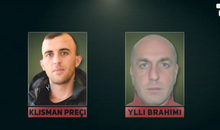
 Flash News
Flash News
Hell in the Gjadri camp, 45 attempted injuries and violent protests
Albanian man who dived into river to save his two deceased children from drowning gets tattooed on their faces
Why World War III is 'speaking', and the Albanian PM Rama is silent
Iran faces near-total internet blackout
Accident on the Grand Ring Road, two cars collide
Bylykbashi at the Stabilization and Association Commission: ODIHR confirmed lack of equality in the May 11 race
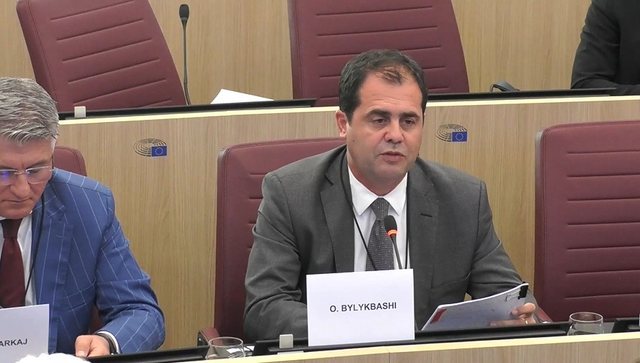
Democratic MP Oerd Bylykbashi in the European Union-Albania Stabilization and Association Parliamentary Committee, that in the May 11 parliamentary elections there was an uneven playing field between the majority and the opposition, also referring to the ODIHR report.
Oerd Bylykbashi's full speech:
Honorable colleagues, honorable participants in this important meeting.
Yes, we have just emerged from an electoral process that will be remembered as one of those that returned Albania to electoral standards after more than 20 years. It is the first time that the audit report opens in the first sentence with the finding that there was no level playing field. And this says a lot, because it summarizes a series of other commitments that come from OECD or Council of Europe standards.
In the first paragraph of the preliminary statement, not yet in the final report, the ODIHR emphasizes that the government has taken advantage of its position as a majority during the electoral race. So, in theory there was a race, but the contestants were not allowed to compete under the same conditions, on the same tracks and with the same freedom. I think we will all have to wait a little longer to understand more. We, as the opposition, know this. We are proving it every day. We are bringing new evidence that goes even further than what the ODIHR has reported so far.
The ODIHR is not saying that there are allegations of a lack of equality in the competition. It is drawing conclusions. It is not saying that there are allegations of benefit from power. It is drawing conclusions. So, for the final report, we will have to wait to see what else comes to light.
A full complaint is now underway with strong evidence of serious violations of basic election standards. Including violations of the secrecy of the vote, ballot box tampering, ballot paper tampering, ballot stuffing, family voting, and many other violations that clearly show that basic commitments were violated.
Diaspora voting was a positive development on the surface, but it was accompanied by massive fraud, especially in the sending and receiving of ballots. Many voters, unfortunately, never received their ballots, or did not find out who had voted on their behalf.
Now I want to focus on something important. The last electoral reform we did by consensus was in 2012, when the Democratic Party was in government. Since then, there have been no more reforms by consensus. There have been attempts, but they have been violated later, so there has been no real consensus.
This speaks volumes about the spirit with which this government is approaching such important issues. Important reforms must be done by consensus, because our goal is common: to have a country that is worthy of the European Union, but more importantly, worthy of its citizens in terms of democracy.
We have dozens of recommendations over the years that have not been implemented, or even addressed. And on the other hand, there is talk about how "champion" Albania is on paper.
So, for me, the question is: What mechanism will we manage to put in place together to ensure that the European integration process - including the opening of chapters, is linked to real developments in the country, including democracy, elections, human rights? So that progress on paper also reflects the real development of the country, not be two separate things.
Will we be able to bring these things together or will we continue on two separate paths, one reality on the ground and another on paper?
Thank you.
Latest news


Zhulali: EU does not tolerate basic standards, membership is a political process
2025-06-18 22:40:09
Recount process/Këlliçi: DP seeks 14th mandate in Tirana
2025-06-18 22:11:20
Hell in the Gjadri camp, 45 attempted injuries and violent protests
2025-06-18 21:49:49


Israel strikes National Police headquarters in Iran, several injured reported
2025-06-18 21:29:11




Why World War III is 'speaking', and the Albanian PM Rama is silent
2025-06-18 20:08:03
Avoid drying towels in the sun, here's how to keep them soft
2025-06-18 20:07:53

Cannabis legalization in Albania, new law, old risks
2025-06-18 19:39:54
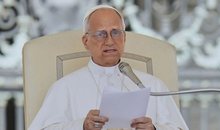
Pope Leo XIV calls for peace: Advanced weapons are temptations we must reject
2025-06-18 19:22:29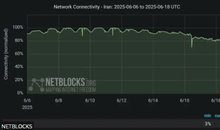
Iran faces near-total internet blackout
2025-06-18 19:07:09

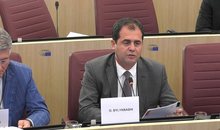
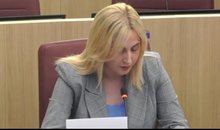

INSTAT: Heart diseases, the leading cause of death in Albania during 2024
2025-06-18 18:05:33



Trump does not rule out the possibility of striking Iran
2025-06-18 17:19:35
Accident on the Grand Ring Road, two cars collide
2025-06-18 17:05:57
Kume: Vote recount increases credibility
2025-06-18 16:59:38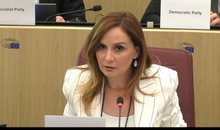
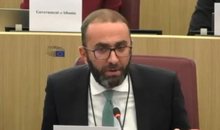

Ndërron jetë ish-futbollisti dhe trajneri i njohur shqiptar
2025-06-18 16:17:02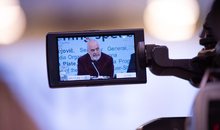
EU calls for "comprehensive reforms" for the media in Albania
2025-06-18 16:06:20
Macron convenes France's Defense and Security Council
2025-06-18 16:04:29
Israeli attacks in the last 24 hours, at least 140 killed in Gaza
2025-06-18 15:58:13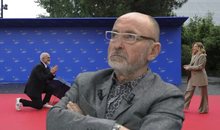
Reflection on Rama's kneeling before Meloni
2025-06-18 15:52:53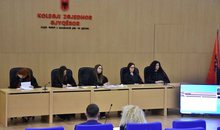

Conference League second round draw, Albanian teams learn potential opponents
2025-06-18 15:29:29

Eurostat 2024: Prices in Albania are catching up with EU levels
2025-06-18 15:07:03
War/ Why is Russia hesitant to help Iran in its conflict with Israel?
2025-06-18 15:00:19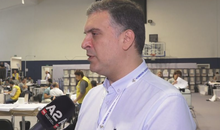
Blushi: Ilir Meta's voice will resound louder than ever in the new Parliament
2025-06-18 14:50:42
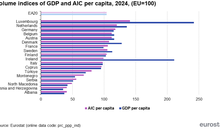

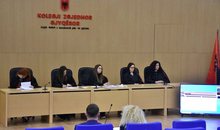
The Electoral College also rejects the DP's complaint for Kukës and Gjirokastra
2025-06-18 14:09:49
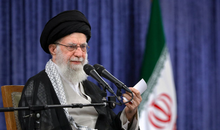
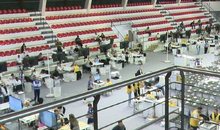
The College rejects the DP's request for invalidation of the elections in Lezha
2025-06-18 13:41:57
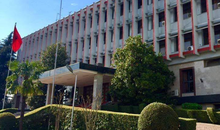
Evacuation of 5 Albanians from Israel, 3 of them arrive in Albania
2025-06-18 13:23:34
Amidst chaos and abuse, is Albania ready to offer sustainable tourism?
2025-06-18 13:01:56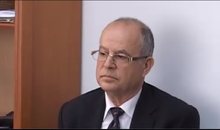

SMILE.al - 5 years of history, the best version of success!
2025-06-18 12:42:25
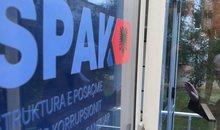
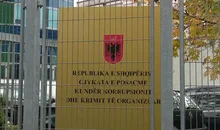

Causes of death in Albania, heart disease leads, suicides increase
2025-06-18 11:47:36
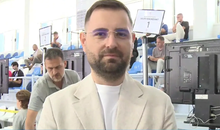


The claim for Jorgo Goro is postponed
2025-06-18 10:59:17
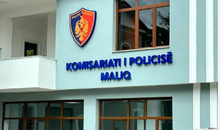
Gave candy and attempted to abuse minor, 60-year-old arrested in Maliq
2025-06-18 10:33:10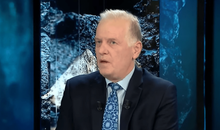
Israel, Iran, us and our world
2025-06-18 10:21:43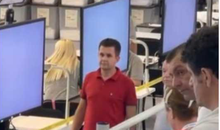
Vote recount for Tirana, Ilir Alimehmeti also present in the process
2025-06-18 10:13:14
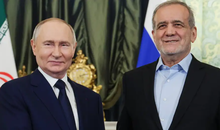
Why is Russia hesitant to help Iran in its conflict with Israel?
2025-06-18 10:00:55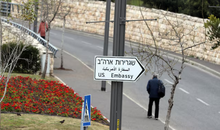
Israel-Iran War/ US Embassy in Jerusalem Temporarily Closed
2025-06-18 09:42:06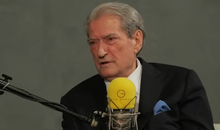
"I wanted to become a writer", Berisha recounts his dream left half-abandoned
2025-06-18 09:33:52
Author of several thefts, thief from Tirana caught in Durrës (NAME)
2025-06-18 09:24:20

Taksa të larta dhe diskrimin, pse emigrantët po largohen përsëri nga Gjermania?
2025-06-18 09:02:32
Socially dangerous person, 27-year-old arrested in Pogradec
2025-06-18 08:51:39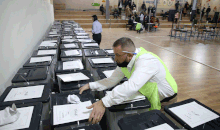
The recount of votes for the Tirana district begins today
2025-06-18 08:37:37

Horoscope, what do the stars have in store for you today?
2025-06-18 08:12:05

Morning Post/ In 2 lines: What mattered yesterday in Albania
2025-06-18 07:45:20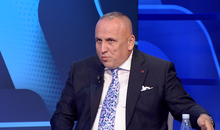


Former prosecutor: Criminal groups are more structured in Albania
2025-06-17 22:02:21

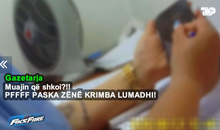

Korça/ A woman comes into contact with electricity
2025-06-17 20:55:40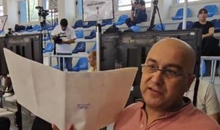

Death makes you neither good nor bad.
2025-06-17 20:38:05
Only 1 in 5 tourists sleep in apartments or hotels
2025-06-17 20:25:16

European Commission proposes complete ban on Russian gas imports
2025-06-17 19:46:58
'Serious concern': EU condemns government attacks on SPAK after Veliaj's arrest
2025-06-17 19:36:01
Fuel prices soar amid Israel-Iran tensions
2025-06-17 19:19:12



Iranian military says it struck Israeli military intelligence center in Tel Aviv
2025-06-17 18:17:27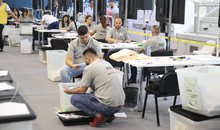
The recount of 94 boxes of Gramsh and Peqin is completed
2025-06-17 18:08:47
Source: The world order is destroyed, how is the world being run today
2025-06-17 17:50:28
